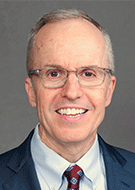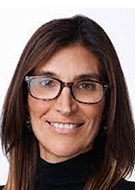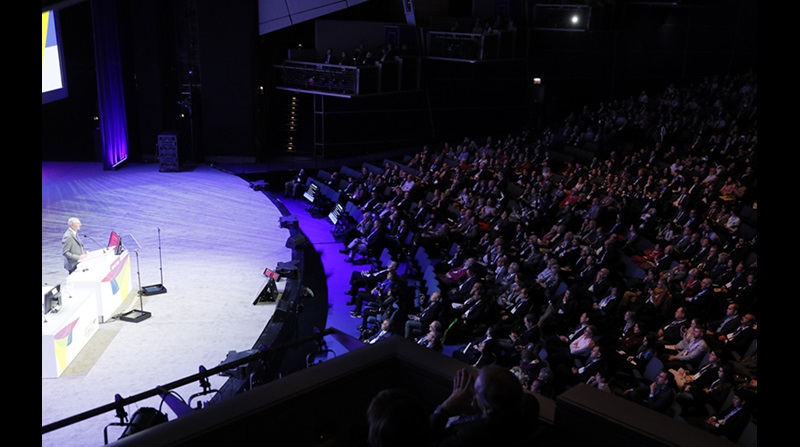RSNA 2024 Plenaries Highlight Human-AI Connection
Annual meeting offers impressive lineup of health care thought leaders, compelling programming


RSNA has announced the plenary session slate for the Society’s 110th Scientific Assembly and Annual Meeting—RSNA 2024: Building Intelligent Connections—to be held Dec. 1–5 at McCormick Place in Chicago. The RSNA annual meeting is the world’s leading annual radiology forum, bringing together thousands of attendees from around the world.
A stellar lineup of thought leaders in health care will focus on the bright horizon of radiology and the important role AI plays in empowering radiologists.
In this year’s president’s address, RSNA President Curtis P. Langlotz, MD, PhD, will explore how radiology, more than any other specialty, is poised to leverage the strengths of high-tech solutions, leading to more meaningful patient-centered care.
As the need for clinical imaging outpaces the growth in the radiology workforce, many radiologists face unsustainable workloads that can lead to burnout and dissatisfaction. AI and other new technologies, when implemented ethically and appropriately, will reduce workloads while supporting and enhancing the radiologist’s role.
Dr. Langlotz will describe how building collaborative, intelligent connections between people and technology will energize the care team and redefine how radiologists deliver care, elevating the role of radiologists and allowing them to refocus on the skills and activities that brought them to the profession in the first place.
“These technologies not only improve health care delivery in high-resource settings, but also can improve the skills of providers in underserved areas in North America and around the world,” Dr. Langlotz said.
Dr. Langlotz is professor of radiology, medicine and biomedical data science, director of the Center for Artificial Intelligence in Medicine and Imaging, senior fellow at the Institute for Human-Centered Artificial Intelligence, and senior associate vice provost for research at Stanford University.
Also during the opening session, Nina Ellen Kottler, MD, MS, will present “The Only Way to Predict the Future Is to Create It.” Dr. Kottler, associate chief medical officer for clinical AI at Radiology Partners in San Diego, will highlight how technology, particularly AI, holds the key to improving health care quality, optimizing the patient and physician experience, and lowering costs.
“The fusion of radiology and AI presents a unique opportunity to significantly boost accuracy and efficiency,” she said. “In this presentation I will provide examples demonstrating how AI-enhanced radiology can revolutionize diagnostics and discuss the importance of intentional bias mitigation to fully realize these benefits.”

Dynamic Mix of Fresh Perspectives and Familiar Formats
During the Monday morning (Dec. 2) keynote address, scientist, cardiologist and author Eric Topol, MD, will discuss “AI’s Transformation of Medicine.” A cardiologist at Scripps Clinic in La Jolla, California, Dr. Topol is a pioneer in the field of cardiovascular medicine and the author of several books, including Deep Medicine: How Artificial Intelligence Can Make Healthcare Human Again.
On Tuesday morning (Dec. 3), Carrie Cunningham, MD, MPH, will present “Removing the Mask, v. 2.0,” which addresses the current mental health crisis among health care professionals. Dr. Cunningham is an associate professor of surgery at Harvard Medical School, section head of the Endocrine Surgery Program at Massachusetts General Hospital, and a senior scientist at the Mass General Institute for Technology Assessment.
On Tuesday afternoon, Nicholas A. Christakis, MD, PhD, presents “Social Artificial Intelligence,” touching on AI-human interactions and how bots can help humans in problem solving and making social connections. Dr. Christakis is the Sterling Professor of Social and Natural Science at Yale University. He directs the Human Nature Lab.
RSNA’s popular Image Interpretation Session will be held Monday afternoon. Bruce Burton Forster, MD, FRCPC, will moderate the single-session event, which will cover multiple subspecialties and offer a cross-disciplinary opportunity to test attendees’ knowledge beyond their area of expertise.
The Wednesday morning (Dec. 4) session will mark the return of radiology’s favorite game show, “Microbial Mayhem: The Pathogenic Party You Won’t Forget!” Moderated by Linda Probyn, MD, and Lindsey Marie Negrete, MD, this lively, team-based competition provides a fun break from the annual meeting pace and invites attendees to compete for bragging rights.
The RSNA/AAPM (American Association of Physicists in Medicine) Symposium will be held on Thursday, Dec. 5, and will be moderated by Lifeng Yu, PhD, with presentations by David A. Jaffray, PhD, and Caroline Chung, MD, FRCPC.
Also returning is the Fast 5, a high-energy session where five speakers present for five minutes each on topics reflecting the RSNA 2024 theme, Building Intelligent Connections. Radiology professionals worldwide have submitted topics for consideration in this popular annual meeting event.
With an impressive lineup of high-profile speakers and a program of timely, compelling topics, RSNA 2024 is the global radiology forum where the power of imaging, education and collaboration come to life.
The opening session will be held in Arie Crown Theater on Sunday, Dec. 1, at 4 p.m. CT. Other meeting activities begin that morning, including science and education sessions and the Technical Exhibits.
For More Information
Visit RSNA.org/MeetingCentral.
Reserve your hotel for RSNA 2024.
Learn more about RSNA 2024 programming.
Explore social and networking opportunities at RSNA 2024.
Sign up for the 5K Fun Run supporting the RSNA R&E Foundation.